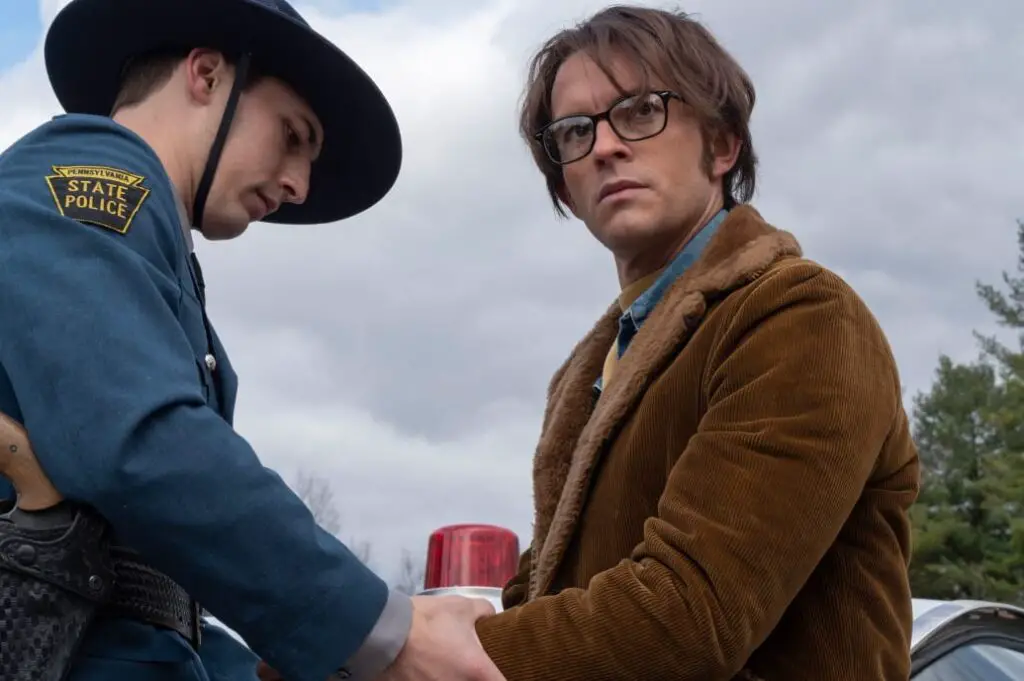Set against the backdrop of mid-20th-century America, the television miniseries ‘Fellow Travelers‘ weaves a poignant narrative of love, political upheaval, and personal struggle. Adapted from Thomas Mallon’s 2007 novel, this historical romance and political thriller revolves around the decades-long relationship between Hawkins Fuller and Timothy Laughlin, two men who meet during the height of McCarthyism in the 1950s. Their journey spans significant historical events, including the Vietnam War protests, the disco era of the 1970s, and the AIDS crisis of the 1980s.
One critical moment in this series is Tim’s imprisonment. In a profound revelation to Hawk in episode 7, Tim discloses the length of his federal prison sentence: a mere 18 months for the destruction of hundreds of Vietnam War draft cards. This stint in prison is not just a narrative device but a pivotal moment that encapsulates the series’ exploration of political activism, personal sacrifice, and the quest for identity in a time when being oneself was a political statement.
‘Fellow Travelers’: A Masterful Blend of Romance and Historical Reality
The series’ narrative structure cleverly interweaves the personal lives of its characters with the political and social landscape of their times. Matt Bomer and Jonathan Bailey deliver captivating performances as Hawk and Tim, respectively. Their complex relationship, marked by love, contention, and the perpetual shadow of societal constraints, forms the heart of the series. Tim’s incarceration, a consequence of his political activism, symbolizes the larger struggle faced by many during this era – a fight against an oppressive system while grappling with personal identities that society deemed unacceptable.
The critical acclaim for ‘Fellow Travelers‘ highlights its success in portraying the depth and breadth of its central queer romance. The series is praised for its unflinching portrayal of the era’s challenges, its authentic depiction of queer relationships, and its ability to weave these personal stories into the larger fabric of historical events. The series has been described as a moving showcase of Bomer and Bailey’s on-screen chemistry, with critics noting its epic scale and emotional depth.


